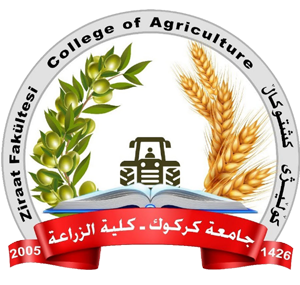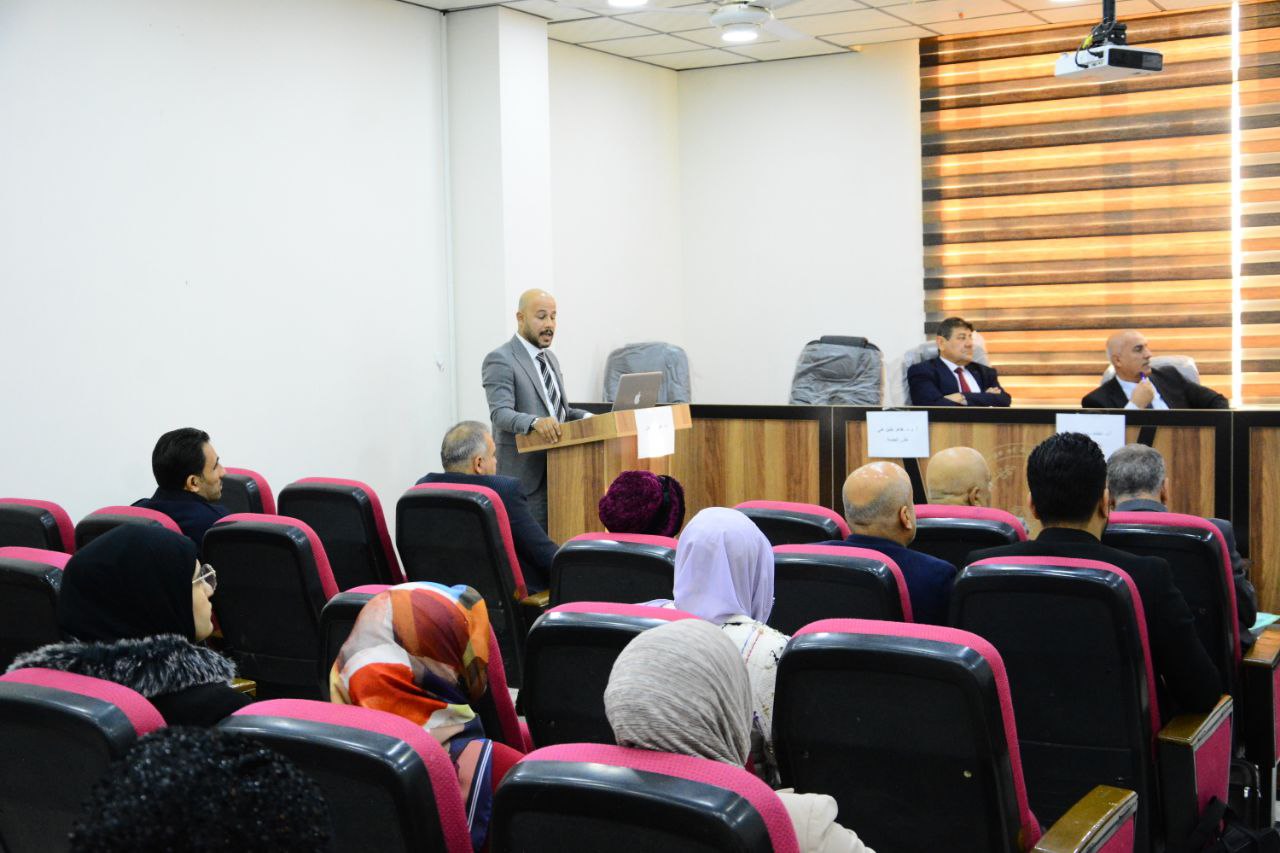Under the patronage of the respected President of the University of Kirkuk, Professor Dr. Imran Jamal Hassan, and under the supervision of the Dean of the College of Agriculture, Assistant Professor Dr. Osama Ibrahim Ahmed, and the Head of the Department of Soil and Water Resources, Assistant Professor Dr. Salah Jassem Amin, the Department of Soil and Water Resources organized its nineteenth scientific symposium on industrial waste and its impact. On soil and human health, coinciding with international Soil Day, in the presence of researchers and specialists in this field.
The symposium aimed to explain the health and environmental risks resulting from chemical pollutants resulting from various industries, especially the oil and battery industries, and to identify sound methods for disposing of industrial waste, especially batteries and know how to recycle industrial waste.
The symposium included two lectures, the first lecture showed the impact of spent batteries on the environment and human health, by Dr. Samira Faydallah Muhammad, while the second lecture touched on the environmental impacts of the oil industries, by Dr. Ali Hakim Al-Dohan.
The symposium recommended the need to oblige oil companies operating in Iraq, within the framework of licensing rounds, to preserve the environment by preventing the burning of gas associated with oil, working to invest it and convert it into gaseous products for various uses, and building special surface facilities to treat polluted water in a way that allows it to be exploited through re-injection. And the necessity of developing Iraqi refineries in order to be able to produce high-quality oil derivatives capable of meeting the needs of internal demand and then exporting the surplus abroad on the one hand and consistent with environmental requirements, and providing devices for measuring and monitoring air pollutants in oil and gas companies and refineries, and recording the results of measurements in Register for this purpose so that the Ministry of Environment can obtain it, provide means and systems for treating pollution using environmentally cleaner technologies, operate them and ensure their efficiency, and work to issue a new law that prevents old vehicles from operating due to them being one of the most important causes of oil pollution in Iraq.





